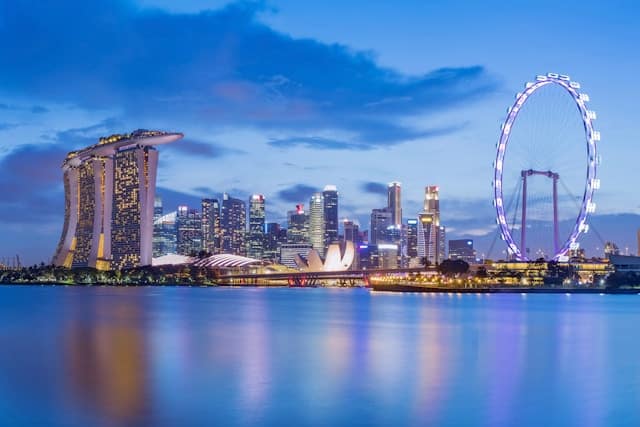Singapore is one of Southeast Asia’s most popular destinations for Australian travellers. Known for its efficiency, safety, and modern infrastructure, the city-state offers a mix of world-class attractions, vibrant multicultural food, and unique cultural experiences. Whether you’re visiting for business or leisure, planning ahead ensures a smooth and rewarding trip.
This guide outlines the essentials Australians need to know before travelling to Singapore in 2025. From visa policies and local currency to airport tips and cultural expectations, it provides a practical overview to help you prepare with confidence.
Visa Requirements for Australians Visiting Singapore
Australian passport holders do not need a visa for short stays of up to 90 days in Singapore. However, visitors must meet standard entry requirements, including having a passport valid for at least six months, proof of onward travel, and sufficient funds for their stay.
Upon arrival, travellers may be asked to show a return flight ticket and complete an electronic arrival card (SGAC) prior to landing. It’s also important to review local customs regulations, especially around items like medications, tobacco, and electronic cigarettes. For more details, visit: Singapore Visa Requirements for Australian Citizens.
If you plan to stay longer or work or study in Singapore, you’ll need to apply for an appropriate visa or pass through Singapore’s Ministry of Manpower or Immigration and Checkpoints Authority.
When to Travel and What to Expect
Singapore has a tropical climate with consistently warm and humid weather year-round. The average temperature ranges from 26°C to 31°C, with occasional rainfall throughout the year. The months between February and April are typically drier, while November to January is the wettest period.
If you prefer to avoid heavy rain or large crowds, plan your trip accordingly. Major events such as Chinese New Year (usually in January or February), the Singapore Grand Prix (September), and Hari Raya Puasa can affect accommodation availability and prices. For seasonal insights, read: Best Time to Travel to Singapore from Australia.
Despite the heat, Singapore is easy to explore with its efficient public transport, clean streets, and well-marked walking paths through parks, gardens, and cultural districts.
Singapore Changi Airport consistently ranks among the best airports in the world. For Australians arriving into Singapore, Changi offers streamlined immigration, duty-free shopping, and on-site attractions like gardens, a butterfly park, and the iconic Jewel complex. For arrival tips, visit: Singapore Airport: Travel Tips and Information.
Getting from the airport to the city centre takes about 20 minutes by taxi, or 30–40 minutes via MRT (train). Once in the city, Singapore’s public transportation system—including MRT lines and bus routes—is affordable and easy to use. Contactless cards or tourist passes make fare payment simple.
Walking is also a practical option in most neighbourhoods. Singapore is designed for pedestrian access, especially in areas like Marina Bay, Orchard Road, and Chinatown.
Currency and Cost Considerations
Singapore uses the Singapore Dollar (SGD). Although credit and debit cards are widely accepted, it’s advisable to carry some cash for smaller purchases, hawker centres, or taxis that may not accept cards.
For exchange advice and financial tips, refer to the Singapore Dollar Currency Guide.
ATMs are readily available, and currency exchange services can be found in shopping malls, the airport, and business districts. For Australians sending or receiving money while in Singapore, digital transfer services may offer better rates than traditional banks.
Singapore is known for being clean, safe, and high-tech, but it can also be more expensive than neighbouring countries. Budget-conscious travellers should look for hawker centres, public attractions, and transport passes to manage daily expenses.
Travel Tips for Australians Visiting Singapore
Here are a few important tips to make your visit smooth and enjoyable:
-
Drink plenty of water and carry sunscreen due to the year-round humidity
-
Tipping is not customary, as service charges are typically included in bills
-
Follow local rules on public behaviour—e.g., no chewing gum, smoking in designated areas only
-
Dress modestly when visiting places of worship or government buildings
-
Bring a reusable water bottle—tap water is safe to drink
-
Download the SG Arrival Card app and check entry requirements before departure
-
Use a multi-currency wallet or prepaid travel card to manage expenses
-
Try local favourites like laksa, satay, and chilli crab at hawker centres
-
Learn a few basic phrases in Malay or Mandarin, though English is widely spoken
For more cultural tips and travel ideas, visit the Remitly Lifestyle and Culture Blog.
FAQ: Singapore Travel for Australians
1. How long can I stay in Singapore without a visa?
Australian citizens can stay for up to 90 days without a visa, provided entry conditions are met.
2. Can I use Australian dollars in Singapore?
No. You must exchange AUD for Singapore Dollars or use international credit/debit cards or digital payment platforms.
3. Is Singapore a safe place to travel?
Yes. Singapore is considered one of the safest cities in the world, with low crime rates and strong public order.
4. What should I avoid bringing into Singapore?
Chewing gum, e-cigarettes, and certain medications are restricted or banned. Always check customs guidelines before your trip.
5. Do I need vaccinations before travelling to Singapore?
Routine vaccinations are generally sufficient. Consult a travel doctor if you have specific health concerns or plan to visit rural areas.

